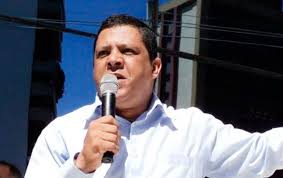By Adilson Araújo, president of the CTB
“The problem of spending in Brazil is not having the poor in the Budget. These are the privileges of the rich, which must be controlled point by point, in tax expenditures, which are effectively given up in the form of revenue, in the same way in policies that serve the collective interest.”
The diagnosis was made by the Minister of Planning and Budget, Simone Tebet, during a press interview last Tuesday (23). She denounces a reality that the hegemonic media, controlled by half a dozen very rich families, insist on ignoring, insisting on a reactionary campaign that, in the name of fiscal balance, has precisely the objective of removing the poor from the Union budget.
Reactionary chant
Repeated editorials and daily commentaries in this unhealthy media outlet, headed by Rede Globo, proclaim the need for drastic cuts in social investments and point out the need for new setbacks in retirement rules, including the increase in the minimum retirement age for women (from 62 to 65 years) and rural workers, in addition to the indexation of this and other benefits of the minimum wage adjustment.
It is alleged that the social security deficit is making the accounts of the INSS unsustainable and that correction is necessary by reducing rights and paying, in the future, pensions below the minimum wage, an indigestible income that they also propose for the Continuous Payment Benefit (BPC), granted to the most vulnerable elderly and disabled people.
Some journalists, paid by capital or by the bourgeois families that own the hegemonic media, behave like economic experts and always present the same biased diagnosis, pointing to alleged government spending on the poorest as the root of all national ills and demanding cuts, also in health and education, services that neoliberal fundamentalists want to transform 100% into commodities.
The unfortunate exemption
What these vehicles deliberately omit is the depletion of INSS income through the unfortunate payroll tax relief policy, which began under the government of Dilma Rousseff. Later, the former president criticized herself, recognizing that this was the main mistake she made while she was in charge of the “Planalto” Palace.
The policy began temporarily in 2011 but was extended in 2021 until December 2023. As the end of the benefit approached, wealthy businessmen who benefit from it began campaigning to obtain its extension until 2027, gaining support in the National Congress, dominated by right-wing and far-right politicians, even to override President Lula’s veto of the law that once again postponed the end of this unjustifiable tax exemption.
Among the objectives that were listed at the time as justifications for the tax exemption policy, which should benefit the companies that employ the most, was not only to maintain the level of employment but also to promote economic growth and the creation of new jobs, which it did. This is not even remotely the case, as pointed out in the IPEA study entitled “The sectors that most (un)employ in Brazil”, written by Marcos Hecksher, coordinator of Productivity, Competition and Taxation, of the Directorate of Sectoral Studies and Policies, Innovation, Regulation and Infrastructure (Diset/Ipea).
The benefited sectors are not the largest employers and, from 2012 to 2022, they reduced their share of the employed population from 20.1% to 18.9%, among those employed with social security contributions from 17.9% to 16.2% and among wage earners with an employment contract. in the private sector from 22.4% to 19.7%. A similar movement is observed with the data available from the Annual List of Social Information (Rais).
The money taken from the INSS coffers through the tax exemption policy was pocketed as profits and dividends, further enriching businessmen, who have no concern or even pity for the poorest and continue to demand drastic cuts in social spending and cry out against the tax burden.
Another promise that remained on paper was that tax reduction would increase the investment rate, boosting GDP growth. In this regard, it is worth remembering the brave and honest self-criticism of former President Dilma Rousseff:
“I thought that if I reduced taxes, I would have an increase in investments,” she said. “I slowed down. I regret it. Instead of investing, they increased the profit margin.”
Taxing the richest
It should be added that the fiscal austerity demanded by the rich has a purpose that also remains hidden in the one-sided narratives of the bourgeois media: to guarantee the payment of the interest on the public debt, which can be considered without exaggeration as usurious interest and consumes about 50% of the Union budget.
The interest is mainly monopolized by a small group of idle rentiers who do not contribute a single cent to the Brazilian GDP. Financial institutions continue to be the main holders of the internal Federal Public Debt, with a share of 29.3% of the stock. Pension funds, with 23.3%, and investment funds, with 22.9%, appear next on the list of debt holders.
The share of foreign investors increased from 9.8% in February to 10.2% in March of this year. The percentage repeated the recent record observed in October last year. The other groups add up to 14.4%.
It is not difficult to conclude that the Minister of Planning is right. The problems that plague the Brazilian nation are not caused by the poor, but by the rich and powerful, who, in addition to the main media, also control the National Congress and have a strong influence on the other institutions of the Republic.
There are solutions and they have already been pointed out by the CTB, other central bodies, social movements and progressive forces in general: substantially reduce interest rates, increase company payrolls, tax large fortunes, dividends, remittances of profits and carry out structural reforms of a democratic and popular nature.
Our challenge is to raise awareness among the working class and the people with the aim of enabling a great national mobilization to change the balance of forces in the political arena, stop setbacks and move towards the real changes that the nation demands and needs, starting with progressive tax reform. It is imperative to burden the richest and relieve the poor.







